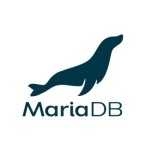I use the solution in my company to take care of the database management area.
The solution should provide users with features to automate some of the daily routines for which there are different tools available. SQL Server should serve as an out-of-the-box tool for database maintenance.
Maintenance of the solution is an area of concern, and improvements can be helpful. The solution should offer an out-of-the-box tool with automatic maintenance procedures, which could make it easier for less experienced people to set up the product easily.
I have been using SQL Server for twenty five years. My company is a system integrator and a Microsoft partner.
It is an extremely stable solution.
It is a scalable solution.
I deal with small, medium, and large-sized customers who use the tool.
It takes a lot of time for users to reach out to the right technical experts who can resolve their issues. Users are redirected to go through the medium-level support, who fail to resolve their issues. I rate the technical support a seven out of ten.
I have limited experience with MySQL. I like SQL Server more than MySQL. Compared to SQL Server, MySQL requires more technical expertise in order to deal with some easy tasks.
The product's initial setup phase is easy.
The solution can be deployed in ten to fifteen minutes.
The product is offered at a very high price, specifically for the enterprise segment, making it very difficult for our company to sell the product to our customers. In the enterprise segment, the tool has quite a bit of experience. For normal cases, the prices are okay.
For development purposes, the tool is free. For medium-sized customers who don't need some enterprise features, the tool would be available for 200 USD per month. For the enterprise segment, the tool's cost can go up to 6,000 USD.
I have limited experience with scaling SQL Server for large datasets.
Speaking about the most beneficial for our company's data analysis needs, I don't know the huge range of services offered by Microsoft, like reporting or integration services, which make it easy for the users to deal with database manipulation, integrations, and reporting. The aforementioned services offered by Microsoft are quite user-friendly.
The tool covers almost all of the security features for data protection with a variety of access protocols, and the database encryption part covers all the cases in my company.
The solution is easy to maintain if you know what exactly you need to do.
The people required for maintenance depend on the scale at which the product is used in an environment, but under normal circumstances, one person is required to take care of the maintenance process.
My company uses the tool for a variety of integrations, especially with the old legacy systems, which can easily be adapted to SQL Server. With modern architectures and web services, it is also possible to integrate SQL Server with any product in the market currently.
Before buying the product, users should check and remember all the licensing parts of the tool since it can be very complex. Users should check very thoroughly for the use case and exactly what prices they need to pay to use it.
I rate the tool a ten out of ten.
















